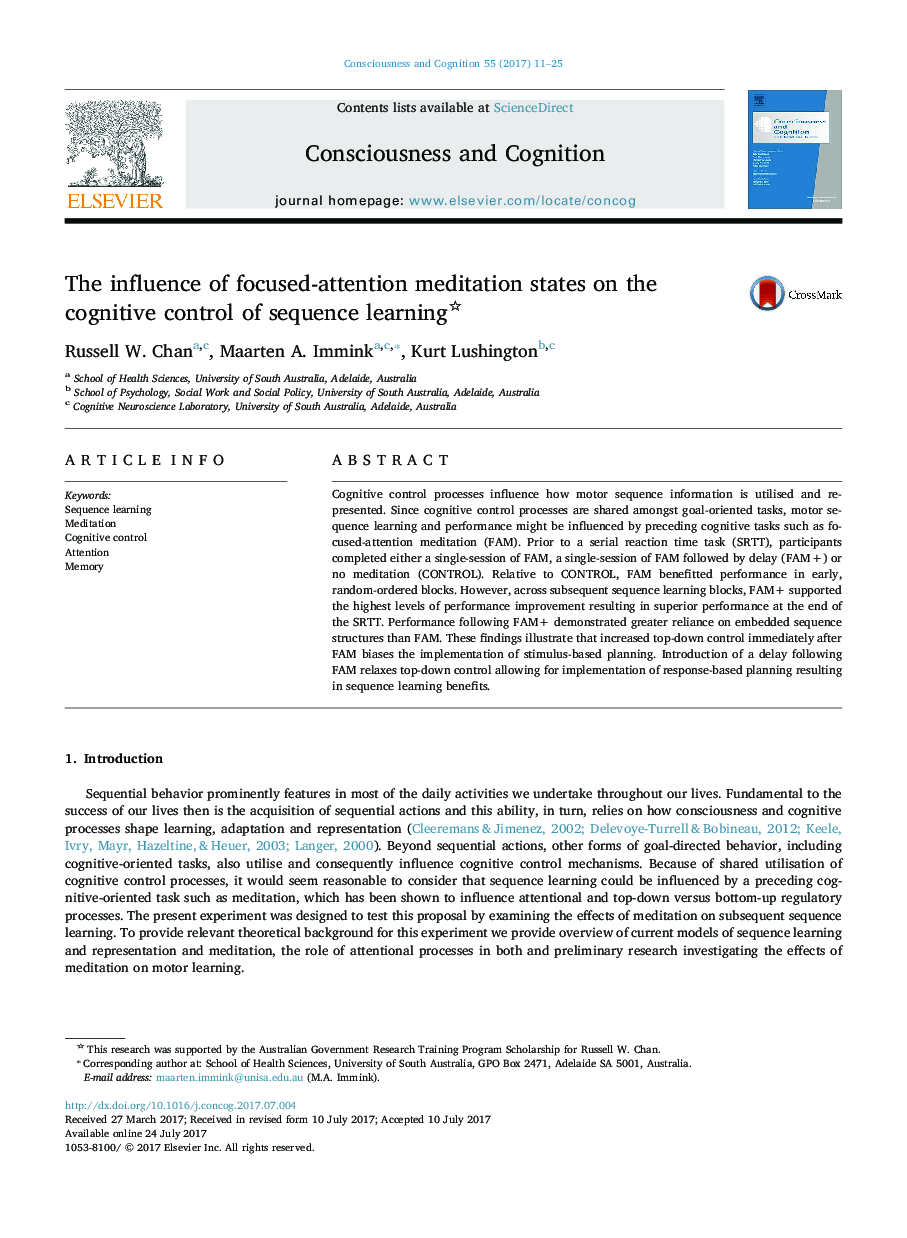| Article ID | Journal | Published Year | Pages | File Type |
|---|---|---|---|---|
| 5041735 | Consciousness and Cognition | 2017 | 15 Pages |
â¢Sequence learning is influenced by preceding focused-attention meditation (FAM).â¢FAM immediately promotes stimulus-based planning and less sequence acquisition.â¢Delayed influences of FAM enhance sequence acquisition and efficient responding.â¢FAM influences sequential behaviour through top-down control processes.
Cognitive control processes influence how motor sequence information is utilised and represented. Since cognitive control processes are shared amongst goal-oriented tasks, motor sequence learning and performance might be influenced by preceding cognitive tasks such as focused-attention meditation (FAM). Prior to a serial reaction time task (SRTT), participants completed either a single-session of FAM, a single-session of FAM followed by delay (FAM+) or no meditation (CONTROL). Relative to CONTROL, FAM benefitted performance in early, random-ordered blocks. However, across subsequent sequence learning blocks, FAM+ supported the highest levels of performance improvement resulting in superior performance at the end of the SRTT. Performance following FAM+ demonstrated greater reliance on embedded sequence structures than FAM. These findings illustrate that increased top-down control immediately after FAM biases the implementation of stimulus-based planning. Introduction of a delay following FAM relaxes top-down control allowing for implementation of response-based planning resulting in sequence learning benefits.
